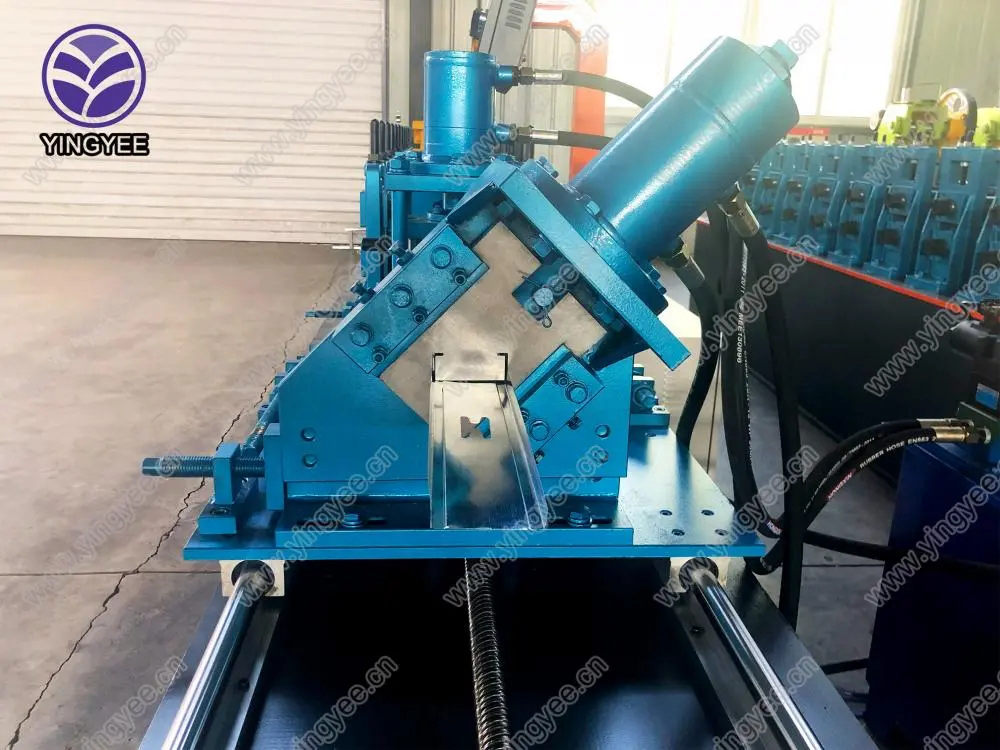
The Evolution of Wall Angle Roll Forming Machines in Gypsum Stud Construction
In the realm of modern construction, particularly in the installation of drywall systems, the introduction and evolution of wall angle roll forming machines have significantly transformed the way gypsum studs and tracks are utilized. This article delves into the intricacies of these machines and their critical role in enhancing the efficiency and quality of drywall installations.
Understanding Wall Angle Roll Forming Machines
Wall angle roll forming machines are sophisticated pieces of equipment designed to shape metal into specific profiles required for drywall constructions. These machines operate by feeding flat metal sheets through a series of rollers that progressively bend the material into desired angles and shapes, specifically wall angles and channels necessary for supporting gypsum boards.
These machines can produce various configurations, including c-channels and u-channels, while also crafting the necessary wall angles that serve as crucial perimeter supports for drywall installations. The precision of roll forming technology allows for uniformity in product dimensions, which is essential in ensuring a tighter fit and reducing material waste on construction sites.
Benefits of Using Roll Forming Machines
One of the primary benefits of wall angle roll forming machines is their ability to streamline production processes, dramatically reducing labor costs and time on sites. Traditional methods of forming wall angles and studs often involved labor-intensive techniques that were subject to human error. However, with automated roll forming, contractors can achieve a high level of consistency and accuracy, which translates to better overall project quality.
Additionally, roll forming machines can operate continuously, allowing companies to produce large quantities of wall angles and studs quickly. This continuous operation not only enhances productivity but also ensures that supply meets demand in a fast-paced construction environment.
Material Efficiency and Sustainability

In recent years, the push towards sustainable construction practices has gained momentum. Wall angle roll forming machines contribute significantly to this trend by minimizing scrap and waste. The precise nature of roll forming enables manufacturers to utilize materials more efficiently, as the process is tailored to specific dimensions required for each construction project. The ability to recycle metal also complements sustainability efforts, as excess materials can often be reused in new formations.
Technological Advancements
The advent of technology has further enhanced the capabilities of wall angle roll forming machines. Modern equipment often incorporates computer numerically controlled (CNC) technology, which allows for intricate designs to be produced with minimal manual intervention. This technological upgrade not only improves the speed of production but also enhances the design flexibility, enabling manufacturers to cater to a wider range of project specifications.
The Future of Roll Forming Technology
Looking ahead, the role of wall angle roll forming machines in the construction industry is poised to expand even further. As building designs become more complex, the demand for customized solutions will increase. Innovations such as smart manufacturing, where machines leverage data and AI to optimize production schedules and resource use, will likely become more prevalent.
Furthermore, the integration of automation and robotics within manufacturing processes will further enhance the precision and efficiency of wall angle production. This evolution will not only benefit construction companies by lowering costs but will also ensure higher quality outcomes in building projects.
Conclusion
In conclusion, wall angle roll forming machines play an indispensable role in the construction of drywall systems, particularly in the efficient production of gypsum studs and tracks. Through their ability to streamline operations, reduce waste, and sustain high-quality standards, these machines have become integral to modern construction practices. As technology continues to evolve, the future of roll forming in drywall installations looks promising, paving the way for advancements in both efficiency and sustainability in the industry.